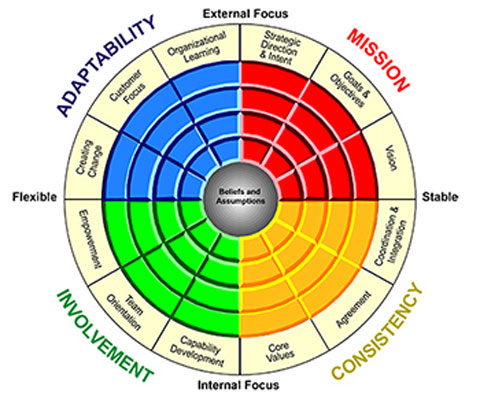Organizational Culture – The Scoreboard for Your Business
- July 26, 2017
- Posted by: Ken Edmundson
- Category: Leadership and People

 In professional sports, a major focus of each year centers around the draft.
In professional sports, a major focus of each year centers around the draft.
The draft, and the typical free agency period that follows, is the time when a team can acquire new young talent and sign proven veterans. It forces each team to determine its strengths and weaknesses, to identify its most essential needs, and to determine which available players could best fit those needs to turn them to into a championship team.
For some teams, a few key acquisitions can lead to a championship (example: the Miami Heat’s offseason of 2010). The results of many team’s efforts are apparent fairly quickly. If a substantial player investment doesn’t lead to on-the-field/court success, in many people’s minds, management has failed.
Much of the value of the draft process is that it forces leadership to evaluate team personnel and define a strategy for improvement. Won/loss records are very black and white indicators of success in sports.
The Organizational Culture Movement is Around the Corner
In business, success isn’t always as clear, but we draw a lot of analogies from sports. Championship teams are often said to have great chemistry, a first-class organization, a culture of winning, or a dynasty. In business, we talk in terms of building great teams, building consistent organizations, and building growth companies.
The example of the draft illustrates what we should understand about our own business. While businesses don’t have won/loss records to determine if they’re a first-class organization or dynasty, the companies that achieve highest goals, win consistently, increase revenue, lower turnover and gain greater market share are the companies that build the most consistent organizational culture.
As you watch, listen or participate in the business discussions during the months and years ahead, you are going to hear a lot more about the power and importance of organizational culture.
Why?
Because it is likely the single most dynamic factor in determining how we are performing as a company.
The 4 Principles of Organizational Culture
One of the best business books on the market today was written by Dr. Dan Denison, a friend of mine and a dynamic leader of a world class organization.
His book, Leading Culture Change, walks us through the research he has completed on over 900 companies, and the impact that the organizational culture had on their success and failure. He reveals how to measure that culture and how to make the changes required to create a high-performing company.
Dr. Denison’s research reveals the 4 basic principles of organizational culture:
- The Mission — successful organizations need a clear sense of purpose and direction
- Adaptability — the degree to which the organization is truly customer focused and responsive
- Involvement — the ability of the organization to give true autonomy to its key people (notice I don’t use the word empowerment) to help build their own areas of responsibility and teams, and develop their own human capital needs, and develop the ability to work together in all areas of the organization
- Consistency — how strongly rooted the organization is in a solid, well articulated and definable set of core values
Edgar Schein, one of the foremost authorities and authors in the area of organizational culture has said, “You’ll either manager your organizational culture or it will manage you.”
It might be an over simplification to say that your organizational culture is the single most important aspect of your business, but it is safe to say that it’s probably least understood, and least talked about aspect of your business.
Using the sports analogy, ignoring your organizational culture is akin to a professional sports team that ignores the draft, yet expects to win the championship with players who cannot compete, don’t feel inspired and perhaps don’t fit the goals of the team.
Evaluating Yours
If your company is not winning consistently, gaining new market share, and having people grow in their knowledge and wealth, then you have to ask yourself why.
If you wanted to measure your company’s ability to compete and win against your five strongest competitors, or measure your ability to reach your goals, or even to know if you can sustain growth for the next 5 years, how would you do it?
Dr. Denison’s organizational culture model can measure all of it for you.
Connect with me if you’d like to learn more, or read about how I use his model to benchmark and improve organizational culture. I’ll be talking about it often in the coming months.




